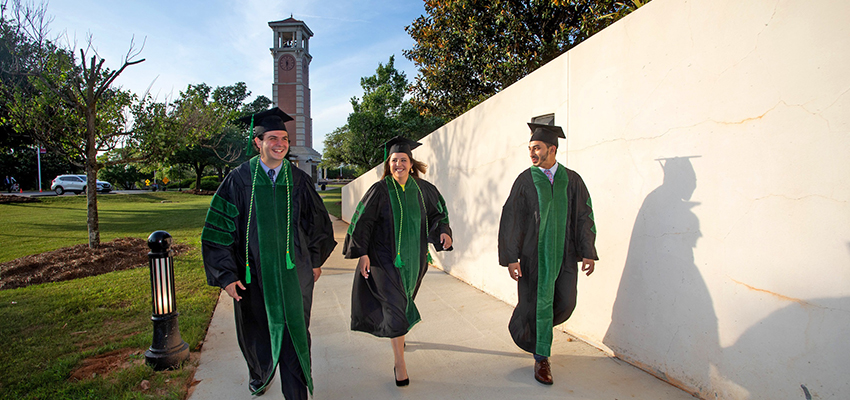How to thrive under the stress of medical school
Posted on September 9, 2020 by Marjorie E. Scaffa, Ph.D., ALC

Thriving is more than merely surviving. To thrive means to grow and develop well, to prosper and flourish. Accepting the fact that medical school is inherently stressful, especially in the era of COVID-19, how can one perform optimally?
It is important to understand that stress is not all bad. A certain amount of stress arouses us and makes it possible to perform well. The key is knowing how much stress evokes your peak performance. Past that point, performance tends to decline and exhaustion and burnout ensue from an overload of stress. Recognizing when stress has reached a point where it is detrimental allows a person to adjust and focus on self-care before becoming physically and mentally exhausted. The level of stress that produces peak performance is different for each of us, as is the level of stress that results in burnout.
In addition to the academic stress of medical school, you will also need to manage the social and emotional stressors that come with the process of becoming a medical professional. You will be growing in many areas at one time. This multiphasic growth is challenging. As a result, you will need to recharge your batteries on a regular basis through self-care.
What does self-care and prevention of burnout look like? First and foremost, it means doing the basics well: getting enough sleep, eating healthy foods, physical activity, social connection, and attention to one’s spirituality, whatever form that may take. Making time to participate in activities you love will energize you and recharge your batteries. Medical school is a marathon, not a sprint, so it is important to pace yourself.
Some additional suggestions for thriving in medical school include:
· Do not overload yourself with too many extracurricular activities; you don’t have to do everything all the time.
· Keep things in perspective; nothing is either all good or all bad.
· Focus on things you can change; it is a waste of time worrying about things over which you have no control.
· Identify, build upon, and utilize your strengths on a regular basis.
· Every student is unique, so do what works best for you; try not to compare yourself to others.
· Recognize that some study strategies that were effective in college are not likely to be as effective in medical school, so be willing to adapt.
· Keep up with the material to be learned as best as possible, read ahead, and prioritize content to be studied.
· Utilize the available resources in the College of Medicine and the University.
There are numerous health and wellness activities and events sponsored by the medical school. Get involved as a wellness officer for your class, participate in wellness house activities, and attend wellness forums. Wellness counseling also is available, and it is free and confidential. You do not need to have a problem to engage in health and wellness counseling; all you need is a goal. The health and wellness habits you develop now as a medical student will carry you through to residency and practice.
If I can be of assistance in your wellness journey, please do not hesitate to contact me at mscaffa@southalabama.edu.
